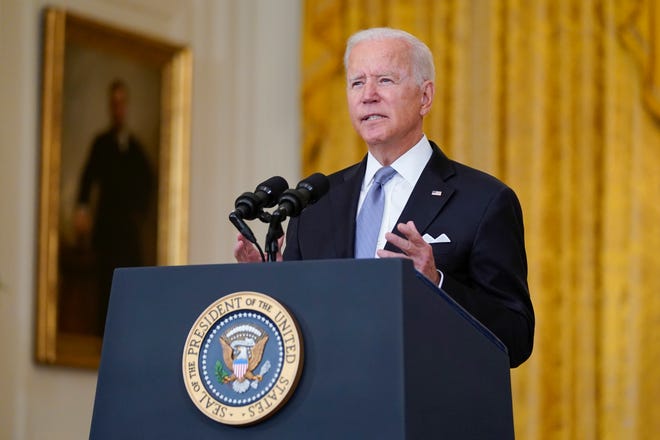
HAMILTON, Ohio – Lawyers for UC Health are invoking a recent Ohio law, giving health care providers the "freedom to decline" any service that violates their conscience, in a legal battle over a suburban Cincinnati man who is being treated with the controversial drug ivermectin.
A Butler County judge said he will rule before Monday on whether to keep or overturn another court's decision forcing West Chester Hospital to treat a man's novel coronavirus infection with the drug. Common Pleas Court Judge Michael A. Oster Jr. Friday morning modified the existing order against UC Health, allowing the hospital to cease treatment of Jeffrey Smith if a "potentially life-threatening side effect does develop."
Oster said from the bench: “I often sit in a courtroom and there’s sometimes a good guy and a bad guy, I think this case is difficult because there’s a lot of good competing rights.” He went on to say: “I wish Mr. Smith (who is on a ventilator and sedated) all the best. I truly do. I wish he would wake up right now."
The UC Health hospital refused the treatment citing lack of FDA approval, but on Aug. 23 a Butler County Common Pleas Court judge approved an injunction requiring the hospital to follow through.
A different Common Pleas judge gave the go-ahead to the prescription by a suburban Dayton, Ohio doctor of 30 milligrams of ivermectin daily for three weeks, as requested by his wife. Julie Smith is the guardian for her husband, court documents show. The couple lives in Fairfield Township and has three children, according to court filings.
Before court Friday, Smith joined hands with three other people and prayed. During the hearing, she appeared to hold back tears on several occasions when her husband's condition was discussed.
Q&A:What we know about ivermectin
The Butler County case is one of a handful nationwide where courts have sided with family members and forced doctors to use ivermectin, which is not approved by the U.S. Food and Drug Administration and the Centers for Disease Control and Prevention in the treatment of COVID-19.
UC Health followed the court's order and allowed the injections for Jeffrey Smith, 51, who came down with COVID-19 in early July and has been in the hospital's intensive care unit for weeks. He no longer has an active COVID-19 infection but continues to suffer from "severe acute respiratory distress syndrome," UC Health said in a court filing Sept. 2.
The hospital system has filed legal papers seeking to overturn the original order and Smith's lawsuit against it. Smith and her lawyers want a temporary injunction against UC Health.
In the recent filing, UC Health's lawyers cited the new exemption, signed into law by Gov. Mike DeWine on July 1 as part of Ohio’s state budget, that allows medical providers to refuse to perform specific services if they violate their religious, ethical or moral beliefs. An analysis of the bill specifies that it covers institutions and insurers with "conscience-based objections to a particular health care service."
Osteopathic physician and state Sen. Terry Johnson, R-McDermott, introduced the amendment to the budget last-minute, without any public hearings. In a statement to the Columbus Dispatch last month, Johnson said “there is much more to the art and science of healing than blind subservience” and medical providers’ conscience and moral compass require protection.
LGBTQ rights advocates raised a flag against the conscience clause during the summer, saying it would strengthen barriers to mental health care for LGBTQ people, particularly LGBTQ youth. DeWine said he believes people will not be discriminated against because of the conscience clause.
In the filing, the UC Health lawyers also warn that treating Jeffrey Smith with acute respiratory distress syndrome "may result in severe detrimental harm to his medical condition."
In court Friday, Ralph Lorigo, a lawyer for Julie Smith, argued for the use of ivermectin. "No one advocates you to go to Tractor Supply to get your ivermectin," he said, adding it needs to be administered by doctors who understand it.
Lorigo also praised the vaccines and said they were helping people, but said it was the "big pharma" investment in vaccines that was stopping Ivermectin from being used more widely. He said if the drug is shown to be a "reasonable alternative" to vaccination that would threaten the emergency approval to use the vaccines.
In response, Charles Galvin, a lawyer for UC Health, said Jeffrey Smith had shown no notable improvements since starting ivermectin. Granting the injunction will "kick down the door to a flood of litigation" related to COVID-19 care, Galvin said.

Interest in ivermectin is rising as the delta variant of the novel coronavirus has spurred higher COVID-19 transmission rates and increased concern among the vaccinated about becoming infected. The interest has been fueled by endorsements from allies of former President Donald Trump as well as U.S. Sen. Ron Johnson, R-Wisc., plus Fox News personalities Laura Ingraham and Sean Hannity. The CDC warned reports of poisoning related to the use of ivermectin have increased threefold this year, spiking in July.
Ivermectin was originally developed to deworm livestock animals before doctors began using it against parasitic diseases among humans. Several researchers won a Nobel Prize in 2015 for establishing its efficacy in humans. It’s available with a prescription to treat head lice, onchocerciasis (river blindness) and other ailments in humans.
The FDA, the CDC and the National Institutes of Health have warned Americans against the use of ivermectin to treat COVID-19, a viral disease. It’s unproven as a treatment, they say, and large doses of it can be dangerous and cause serious harm.
A review of available literature conducted last month by the journal Nature found there’s no certainty in the available data on the potential benefits of ivermectin. There are six active clinical trials of ivermectin in the U.S. against COVID-19, according to a search of the U.S. National Library of Medicine's website, Clinicaltrials.gov. Most of the six trials call for ivermectin to be used with other drugs; all but one are small-scale, early studies. One study was withdrawn.
In testimony on Thursday, the doctor who prescribed ivermectin to Jeffrey Smith acknowledged he did not request or review medical records of Smith before prescribing ivermectin.
Dr. Fred Wagshul is a Dayton, Ohio-area pulmonologist who is listed as a founder of the Front Line COVID-19 Critical Care Alliance (FLCCCA), a nonprofit that touts ivermectin as both a preventative and treatment for COVID-19. Its “How To Get Ivermectin” section includes prices and locations of pharmacies that will supply it, from Afghanistan to Fort Lauderdale to Pennsylvania to Sao Paulo, Brazil.
A key contention of the hospital’s attorneys is that Wagshul did not know Jeffrey’s medical history.
Wagshul confirmed in court he had not requested a certified copy of Jeffrey’s medical record from the hospital and that he “knew nothing about this patient at the time [he] wrote that prescription for ivermectin, other than conferences with Mrs. Smith."
Julie Smith, Jeffrey’s wife, testified her husband had been “up and down” on the ventilator prior to the injunction when he began receiving regular doses. Since then, he’s stabilized.
That was confirmed in part by Jeffrey Smith’s ICU physician, Dr. Daniel Tanase, though Tanase also said Smith s not at the point where he can come off the ventilator.
“Has it made a difference? I think it has,” Wagshul said of the ivermectin. “Can I prove it? No.”
Attorneys for the hospital also asked Julie why she and her husband hadn’t gotten vaccinated, to which she replied they were concerned that it had not yet gotten FDA approval at that point.
Julie Smith declined to talk to the press on Friday.
Enquirer media partner Fox19 provided reporting for this story, as did Grace Deng and Sarah Szilagy of the Columbus Dispatch.
Source link







